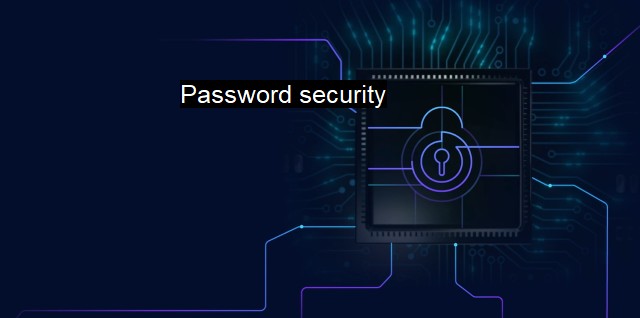What is Password security?
The Importance of Robust Password Security in Today's Digital Age: Protecting Personal and Business Data from Cybercriminals.
In the context of cybersecurity and antivirus software, password security is a measure implemented to prevent unauthorized access to data. Data breaches can result in loss of integrity, availability, and confidentiality of data putting individuals, companies, and even governments at high risks. Fundamentally, password security involves the use of strong, complex passwords and strategies such as multi-factor authentication.Encryption, hashing, and salting are important techniques in password security. Encryption converts a plaintext password into a ciphertext that is indecipherable without a decryption key while hashing turns a password into a fixed length of digits, regardless of how long or short the original password is. The output of hashing, it's essential to understand, cannot be converted back to the initial password which proves integral for added security. salting adds randomness to passwords. Salt, in the cybersecurity sphere, is a random data that is generated for each user and is added to their password. Through this unique combination, even common and weak passwords have an additional layer of protection against potential breachers.
Among the best practices to ensure password security is the use of strong, complex passwords including a combination of upper-case, lower-case, numbers, and special characters. each password should be unique for each separate account so that if one is compromised, the hackers can’t access other accounts. It is also recommended not to use personal information, such as names, birthdays, or addresses, as these may be easy for hackers to guess.
There's a noteworthy rise in the widespread usage of password management tools, which provide a secure way to store, generate, and manage passwords for different sites. These tools caution the user against reusing the same passwords and encourage complex password creation which isn’t easily decipherable.
Another crucial practice includes regular password changes. While some argue that frequent changes can reduce security as users tend to opt for easier passwords, occasional changes, particularly if a password may have been compromised, is recommended. Changing passwords at strategic intervals can make it more difficult for unauthorized persons to gain access even if they have an old password.
While these precautions can help maintain password security, there are mechanisms like multi-factor authentication (MFA) that provide additional advantages. With MFA, users need to authenticate their identity with two or more credentials to access their accounts. This may include something the user knows (like a password), something the user has (like a security token), or something the user is (such as a fingerprint).
Also, antivirus softwares play a vital role in this context. Besides guarding against malware and viruses, many have evolved to include features that provide alerts when users enter passwords on dubious websites and help detect phishing attempts, minimizing the likelihood of password theft.
It is critical to educate users about their role in password security. Many data breaches are the result of human error, and education can significantly reduce such incidents. The importance of password security in the age of increasing digital threats cannot be over-emphasized. Regular training and education, in conjunction with robust technical controls, can effectively halt unauthorized access to data.
While achieving one hundred percent password security is undeniably an uphill task, adherence to best practices and leveraging advanced security mechanisms can significantly deter most attacks. Consequently, balancing cyber hygiene with complex technical controls will sketch the route to a more defendable virtual space. Password security, therefore, forms the fabric of a comprehensive cybersecurity strategy.

Password security FAQs
What is password security and why is it important in cybersecurity?
Password security refers to the practice of creating strong, unique, and complex passwords to protect personal and confidential information from cyber threats. It is crucial in cybersecurity to prevent unauthorized access, identity theft, and data breaches.What are some tips for creating strong and secure passwords?
Some tips for creating strong and secure passwords include using a combination of upper and lower-case letters, numbers, and special characters, avoiding predictable patterns or dictionary words, and using password managers to generate and store unique passwords for different accounts.How often should I change my passwords to maintain password security?
It is recommended to change passwords regularly, at least every three months, to maintain password security. However, it is also important to change passwords immediately if there is a possibility of a security breach or if any suspicious activity is detected in user accounts.What are some common mistakes to avoid when it comes to password security?
Some common mistakes to avoid when it comes to password security include using easily guessable information such as birthdates, names, or common words, using the same password for multiple accounts, sharing passwords with others, and not updating passwords regularly. It's important to take these precautions seriously to protect personal and confidential information from cyber threats.| | A | | | B | | | C | | | D | | | E | | | F | | | G | | | H | | | I | | | J | | | K | | | L | | | M | |
| | N | | | O | | | P | | | Q | | | R | | | S | | | T | | | U | | | V | | | W | | | X | | | Y | | | Z | |
| | 1 | | | 2 | | | 3 | | | 4 | | | 7 | | | 8 | | |||||||